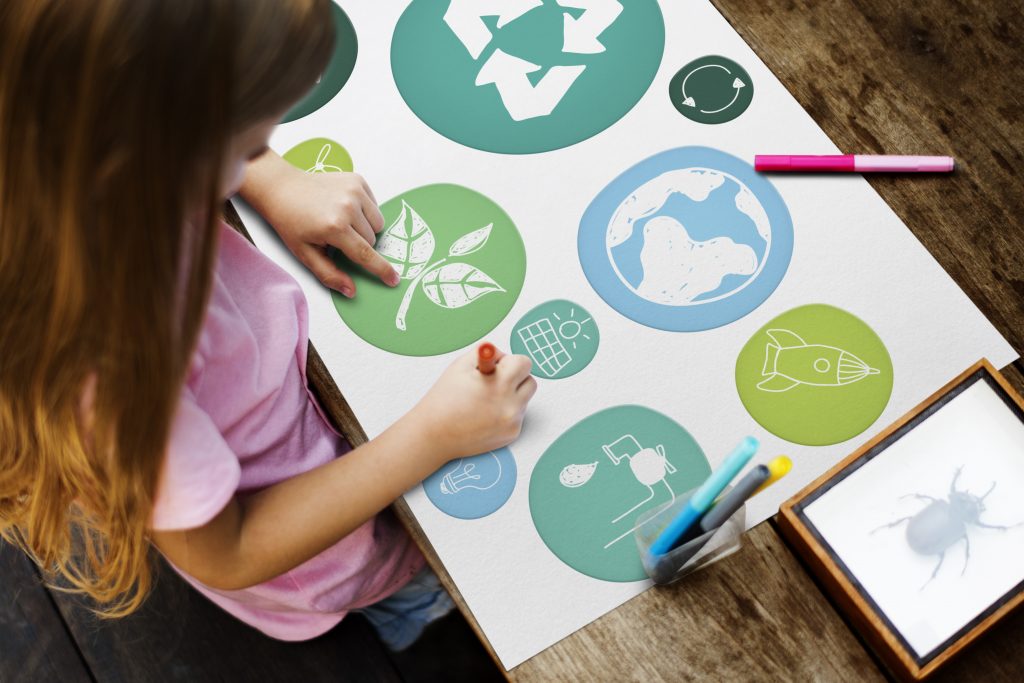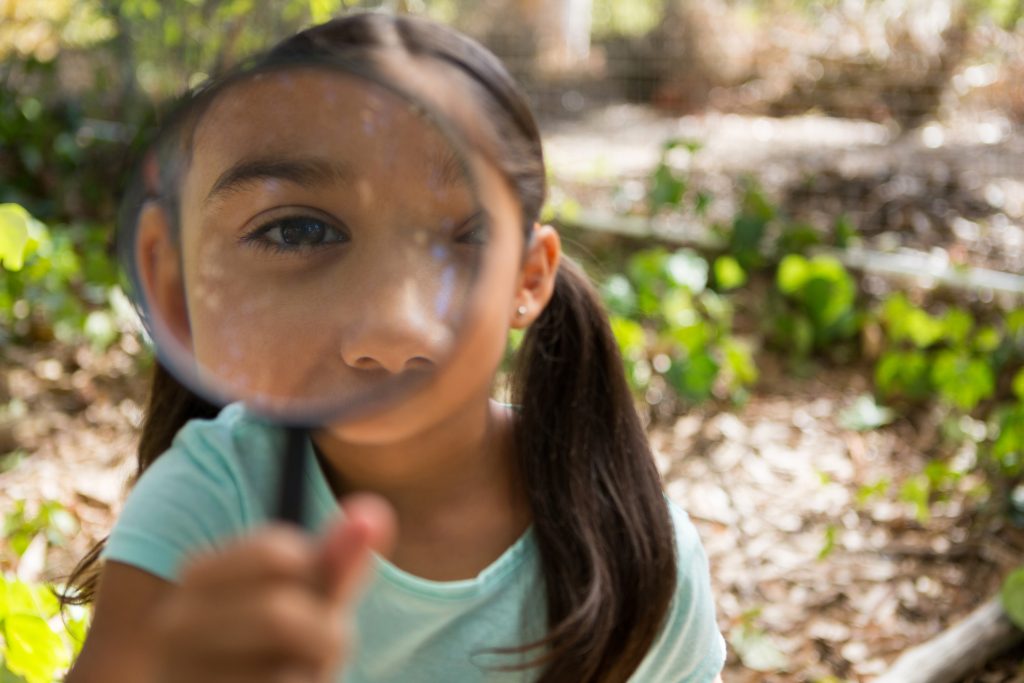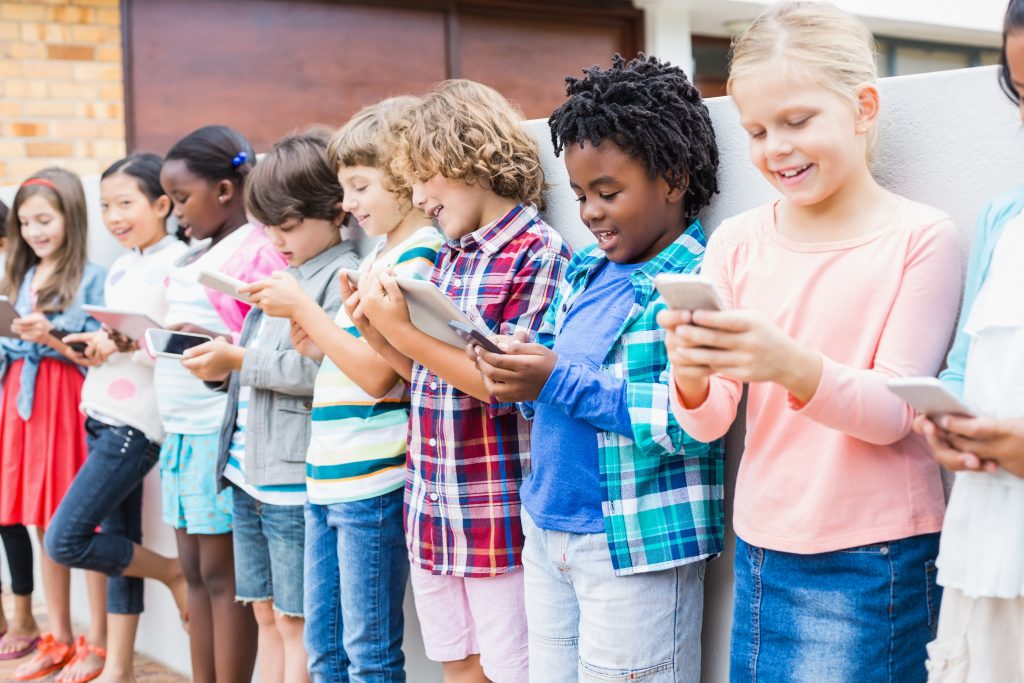The world is in a constant state of change. As a result, humanity has evolved in some respects for the best and, in others, for the worst, and education has followed the same pattern. Today’s teachers need to embrace and adapt to the constant eco-systemic and technological advances and revamp their instruction accordingly to bring out the best in their students. The purpose of an educator is not just to prepare students for their future but also to teach them skills to create a better future for all humanity. This can prove difficult because the challenges society faces are constantly evolving. However, what we already know should serve as a foundation or base in order to explore the unknown. Regardless of the difficulty, I believe that change must be embraced, for it always leads toward progress. Nevertheless, as students acquire academic and technological knowledge, they must not forget the values that make us human and connect us with one another. If by using technology, future generations forget about this human aspect, it may be better not to take part in it.
Information Overload
Today, there is an enormous flux of information on the internet, accessible to each one of us. These days, students are not limited to only a few sources of information, unlike in the past, when their resources were primarily the teacher and a library. The internet provides a variety of learning material and encyclopedias, allowing students to learn about almost anything imaginable. For schools to thrive in the future, visionary and hardworking educators are needed—those who can keep up with every opportunity presented, even as it shifts beneath them.
As students are now overloaded with information, schools have the responsibility to teach them how to take it in, question it, and decide how to use it. Teaching using the old methods of memorization and recall skills should be cast aside, and the education system should instead look to teaching students skills they can use to decipher and analyze this overload of information. Since high-quality content is easily accessible, students need to learn to ask:
- What can I do with this content?
- How can I apply this content?
- How can I use abundant information to solve problems?1
Students require these skills to give them the opportunity not only to take in and learn but also to act on what they have learned.
Addressing Real-World Issues
The future of education has to shift its focus beyond simple content accumulation to teaching powerful skills that will prepare students for a world that requires talents beyond content and knowledge retention: collaboration, perseverance, and communications skills.
Each student is unique with individual abilities and talents. The education system should embrace this and explore what each student has to offer. Our educators need to realize that teaching content is not the point. The point is to teach students the skills to access, modify, and contribute content. And what better way to create a culture of contribution than to have students use their strengths, passions, and skills to address the problems of the real world?
Our students are not just students; they are our offspring. We will leave them the legacy we inherited from our predecessors, after having developed it to meet our own needs. Now we must pass our knowledge on to society’s upcoming citizens, but with the added twist of giving them the ability to think past their own needs and into the needs of the world as a whole—remembering that, with each generation, students will inherit the responsibility of caring for our planet for years to come.

Collaboration on a Global Scale
Due to the immense advancement of technology, our world has become similar to a small village. If we don’t collaborate with one another, it will be difficult to live with one another. This is why students of today need new skills to collaborate on a global level. With that goal in mind, teachers face the challenge of finding new and creative ways to provide students with the skills necessary to use this new technology and join forces with others across the world. Finding new information is quite easy today—all you need is a tablet or an iPhone—but students, more than anybody else, need to use their critical analysis skills to evaluate the veracity of new information. This has to be taught everywhere—at home, at school—because without these skills, students will find it difficult to face the challenges this vast flux of information presents.
However, academic knowledge and skills are only one side of the medal; the other side is social skills, without which society at large cannot function. Students need to learn tolerance, accepting one another for their abilities and virtues without closing their eyes on their flaws. They need to develop communication, openness, and tolerance toward different cultures and ideas.
Faced with Challenges
I strongly believe that if society, in general, does not invest in the education of their youth, that society is doomed to failure. Many countries of the world are reforming their education systems because the previous learning means and techniques can no longer be applied due to the new challenges students will face now and in the future. Rapid growth in technology plays a huge role in this and has changed the way we need to approach education. According to the Organisation for Economic Co-operation and Development (OECD), there are three main challenges society faces that our education system needs to consider when it comes to revamping the future of education:
A first challenge is environmental: e.g.
- Climate change and the depletion of natural resources require urgent action and adaptation.
A second challenge is economic: e.g.
- Scientific knowledge is creating new opportunities and solutions that can enrich our lives while at the same time fuelling disruptive waves of change in every sector. Unprecedented innovation in science and technology, especially in biotechnology and artificial intelligence, is raising fundamental questions about what it is to be human. It is time to create new economic, social, and institutional models that pursue better lives for all.
A third challenge is social: e.g.
- As the global population continues to grow, migration, urbanization, and increasing social and cultural diversity are reshaping countries and communities.
- In large parts of the world, inequalities in living standards and life chances are widening, while conflict, instability, and inertia, often intertwined with populist politics, are eroding trust in government itself. 2
When considering changes to the education system, educators must take a look at how students can be taught to deal with these challenges. This is the only way to avoid contributing to economic and social inequities and natural resource depletion.
A Need for Broader Knowledge
Future generations need more than concrete knowledge and skills to be successful and prosperous; they also need progressive attitudes and values. Education is a key factor in the development of these attributes. Through education, we can give our knowledge to our offspring, leaving them, as an inheritance, the ability to create a more stable future—a future that is all-embracing.
The education system needs to provide students with both broad and specialized knowledge. Attaining knowledge within a specific field of study is not enough. In order for students to become contributing members of society, they will need the attributes necessary to deal with various challenges as they move through life. They will need to look at the past as they move through the present and plan for the future. In social arenas, they will need the skills to interact with their family and friends, participate in community life, and engage with the world. In the field of ever-changing digital technology, they will need to adapt quickly. 3 Students will need to engage in the reality they live to respect it with all its complexities, weaknesses, strengths, and values. The responsibility of imparting these skills to students lies not only with the family but also with the education system; it cannot step aside and let someone else do its job, waiting for things to turn out just fine.
The future needs to be more creative and innovative; teachers must embrace the culture of “new” and develop new ways of thinking and instructing, shifting their ways from the archaic toward the new. When establishing new teaching goals, the education system should take into consideration the possibility of new products and services that we could offer to society and the creation of new professions and methods in order to meet society’s upcoming needs. Time is in constant change; we are evolving, and in order to survive, students need to learn the skills of adaptability, creativity, curiosity, and open-mindedness.4
What is adaptability?
Adaptability is the ability to adjust to changes in your environment using interpersonal, communication, creative thinking, and problem-solving skills. Being adaptable can help students in their future careers quickly respond to changing responsibilities, expectations, and trends at work.
What is creativity?
Creativity is an ability that takes place first in mind, giving shape and form to ideas, allowing you to look beyond what exists and produce new products such as literature, paintings, music, technological equipment, architecture works, and other inventions. To be creative means to turn your ideas and imaginations into reality for your benefit and the benefit of people in general. Experimenting, exploring, questioning, imagining, associating, analyzing, and synthesizing information are constituent parts of creativity. Every piece of equipment we have today is the result of creative minds. Teachers can bring out each student’s creativity and help them use it for their own good and for the good of society at large.

What is curiosity?
Curiosity is a strong desire to know, learn, and understand how everything works. It implies having an interest in a person, thing, issue, problem, or experience that would lead to an inquiry. Every normal human being grows intellectually from childhood to adulthood by exploring the world around him. One of the most common causes of curiosity is asking questions. It happens every day in schools, enabling students and teachers to cooperate and make progress. Curiosity doesn’t imply the need to create an opinion—it simply means being open to the unknown and broadening your understanding of everything around you. Without curiosity, there would be no scientific progress. As Albert Einstein stated, “The important thing is not to stop questioning. Curiosity has its own reason for existing.” 5 Einstein attributes his success to having a curious mind.
What is open-mindedness?
Open-mindedness is a characteristic feature of rational and critically thinking people. Being open-minded means accepting new ideas, arguments, and facts, even when they go against your previous beliefs and convictions. It means reevaluating your beliefs and thoughts in light of new information. However, this doesn′t mean we must embrace everything new without first scrutinizing it under undeniable facts and truths.
When students learn to become open-minded, they develop empathy for other people, respecting others for their opinions and views. They will get to know themselves better through new experiences, which will help them grow and become mentally strong while feeding their mind with wisdom, information, and facts. Open-minded students will improve themselves through challenges and the life lessons of other people’s experiences. They will analyze the past to learn from it and evaluate, then embrace, new discoveries for a better future.
Experiences of the Past
Although humanity has evolved in technology and the sciences and has its eye on the future, the education system should not dismiss the past, as looking to the past can provide us with insight. It can look to members of society for examples, knowledge, wisdom, and experiences that serve the common good and apply it to their teaching. Every nation, with its own culture, can provide something unique.
Maybe the key to our success lies in one of those old sayings of the sages of the past—something that will enlighten our mind, give us hope, encourage us, clarify our thoughts, and be a role model for the youth. As Malcolm X stated, “Education is the passport to the future, for tomorrow belongs to those who prepare for it today.” 6 The education system has the responsibility to prepare our students for their tomorrow; otherwise, we risk leading them to failure. Without the knowledge of our ancestors, it would have been impossible to make the gradual progress that has been leading society toward a better future.
One of the many gifts of humanity is the invention of writing, which has made thought immortal. Passing the written word from generation to generation has established the means to create progress and advance in the future. Incorporating lessons from the past with the challenges of the future, teachers can ignite the spark within students, enlightening them with wisdom and knowledge—whether scientific, social, or other.

Education’s Role in Society
In order for a young learner to utilize all necessary means and develop their skills, society as a whole has to function in accordance with the requirements of the world in which we live. Society consists of constituent parts; each one cannot function by itself. They are intertwined with one another. If one sector of society fails to accomplish its duty, it will affect the other sectors. Teaching is one of those parts—it plays an intricate role in society. It is a key factor that must not be neglected because from what we invest in the present come to the crops we will have in the future. No other sector is more important than teaching. Many countries in the world have invested billions of dollars in their teaching sector. We can learn from the past and share our experiences with each other—not just with our countrymen but also with colleagues from foreign countries. There is so much to learn and benefit from one another.
The responsibility lies in the hands of educators to give our students the skills to take in knowledge, question it, modify it, and use it—in the end, to contribute new content to society in an attempt to create a better future for themselves and their children.
References
1. Will McCoy, “Learning for the Future: Preparing Students for the Challenges and Opportunities They Will Face,” EdTech Authority, September 3, 2018, https://edtechauthority.com/learning-future-preparing-students-challenges-opportunities-face/.
2. Organisation for Economic Co-operation and Development (OECD), “The Future of Education and Skills, Education 2030: The Future We Want,” 2018, PDF file, accessed on November 11, 2020, https://www.oecd.org/education/2030/E2030%20Position%20Paper%20(05.04.2018).pdf.
3. OECD, “The Future of Education and Skills.”
4. OECD, “The Future of Education and Skills.”
5. Albert Einstein, “Old Man’s Advice to Youth: ‘Never Lose a Holy Curiosity’,” memoirs of William Miller, Life, May 2, 1955, 64, https://books.google.co.uk/books?id=dlYEAAAAMBAJ&printsec=frontcover&source=gbs_ge_summary_r&cad=0#v=onepage&q&f=false.
6. Malcom X, quoted in Norbert Juma, “140 Quotes About Education and the Power of Learning,” Everyday Power, May 25, 2020, https://everydaypower.com/quotes-about-education/
Additional References:
Adaptability Skills: Definition and Examples.” Indeed.com. February 25, 2020. https://www.indeed.com/career-advice/career-development/adaptability-skills.
“Open-Mindedness.” Authentic Happiness University of Pennsylvania. Accessed November 11, 2020. https://www.authentichappiness.sas.upenn.edu/newsletters/authentichappinesscoaching/open-mindedness#:~:text=Definition,of%20thinking%20for%20one’s%20self.
Cherry, Kendra. “The Benefits of Being Open-Minded.” Verywell Mind. Updated March 30, 2020. https://www.verywellmind.com/be-more-open-minded-4690673.
Couros, George. “3 Challenges for the Future of Education.” Georgecouros.ca. August 5, 2018. https://georgecouros.ca/blog/archives/8415.
Durayappah-Harrison, Adoree. “The Secret Benefits of a Curious Mind.” Thriving101 (blog). Psychology Today. October 8, 2014. https://www.psychologytoday.com/us/blog/thriving101/201410/the-secret-benefits-curious-mind.
Jacob, Carmen. “How to be Open Minded (9 Examples).” Up Journey. Updated January 29, 2019. https://upjourney.com/how-to-be-open-minded.
Sasson, Ramez. “What Is Curiosity and Why It Is Important for Success.” Success Consciousness (blog). Accessed November 11, 2020. https://www.successconsciousness.com/blog/personal-development/what-is-curiosity/.
Stenger, Marianne. “Why Curiosity Enhances Learning.” Edutopia (blog). December 17, 2014. https://www.edutopia.org/blog/why-curiosity-enhances-learning-marianne-stenger.
UNESCO. “Leading SDG 4 – Education 2030.” Accessed November 11, 2020. https://en.unesco.org/themes/education2030-sdg4#:~:text=Education%20is%20a%20human%20right,and%20contribute%20to%20their%20societies.
“What is Curiosity?” GoStrengths! Accessed on November 11, 2020. https://gostrengths.com/what-is-curiosity/.
Willis, Judy. “Preparing Your Students for the Challenge of Tomorrow.” Edutopia (blog). August 20, 2014. https://www.edutopia.org/blog/prepare-students-challenges-of-tomorrow-judy-willis.
Yeo, Jennifer. “Facing the Challenges of the Future Education.” Learning: Research and Practice 5, no. 1 (May 3, 2019). https://www.tandfonline.com/doi/full/10.1080/23735082.2019.1585120.
